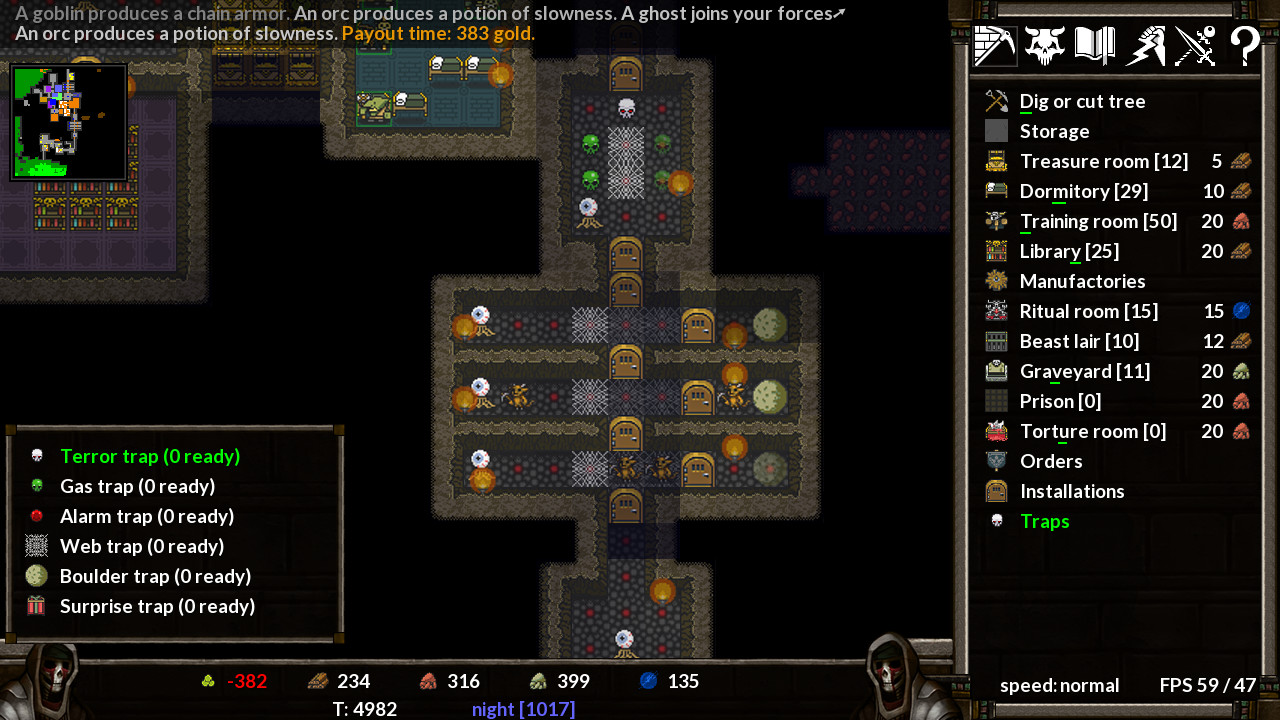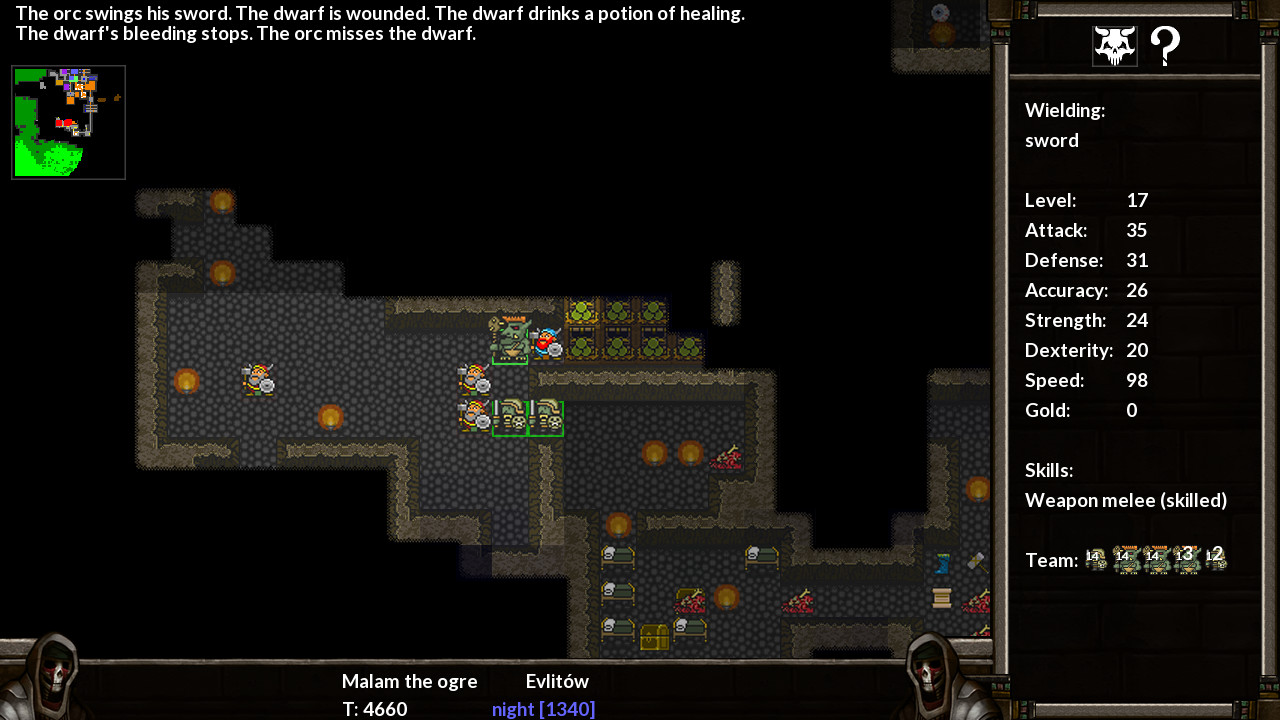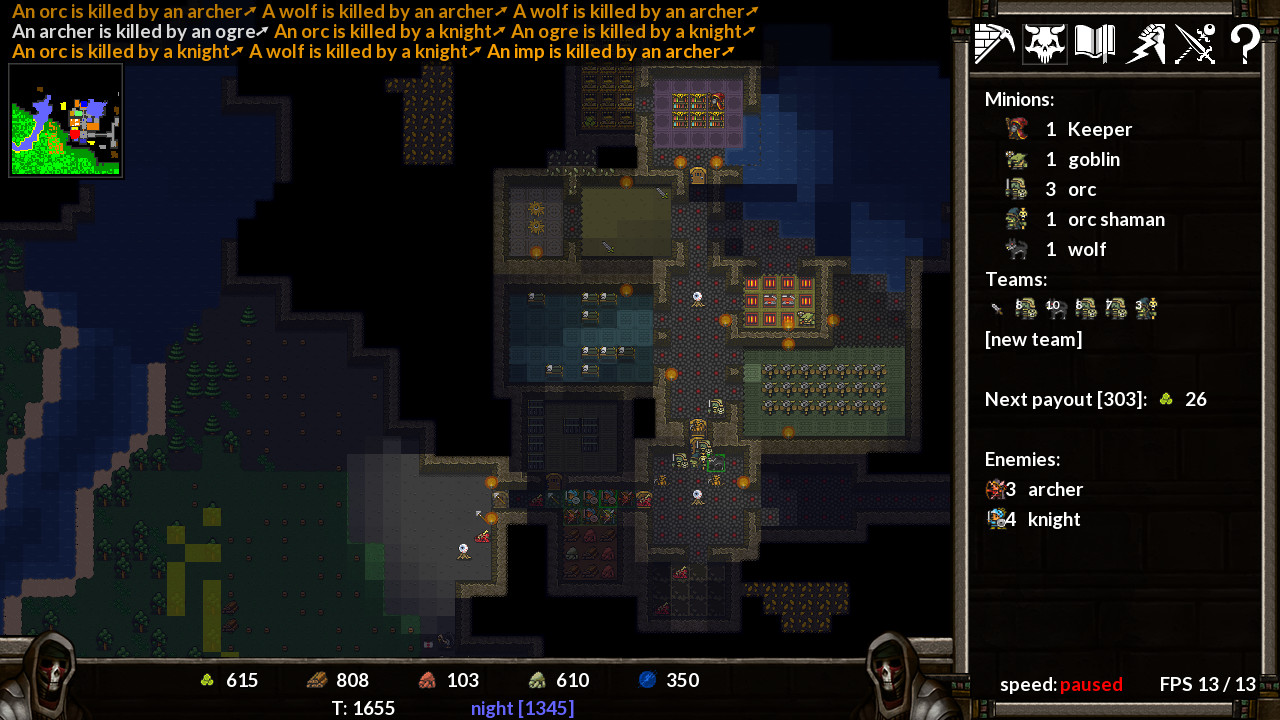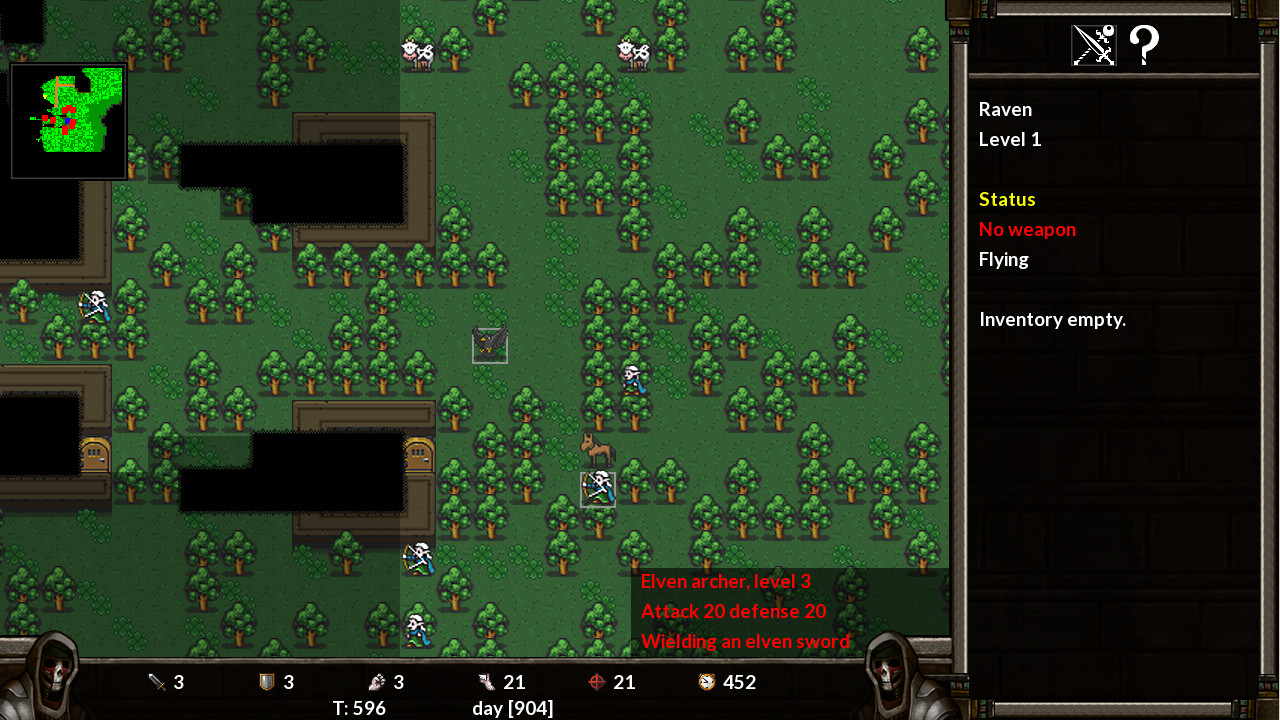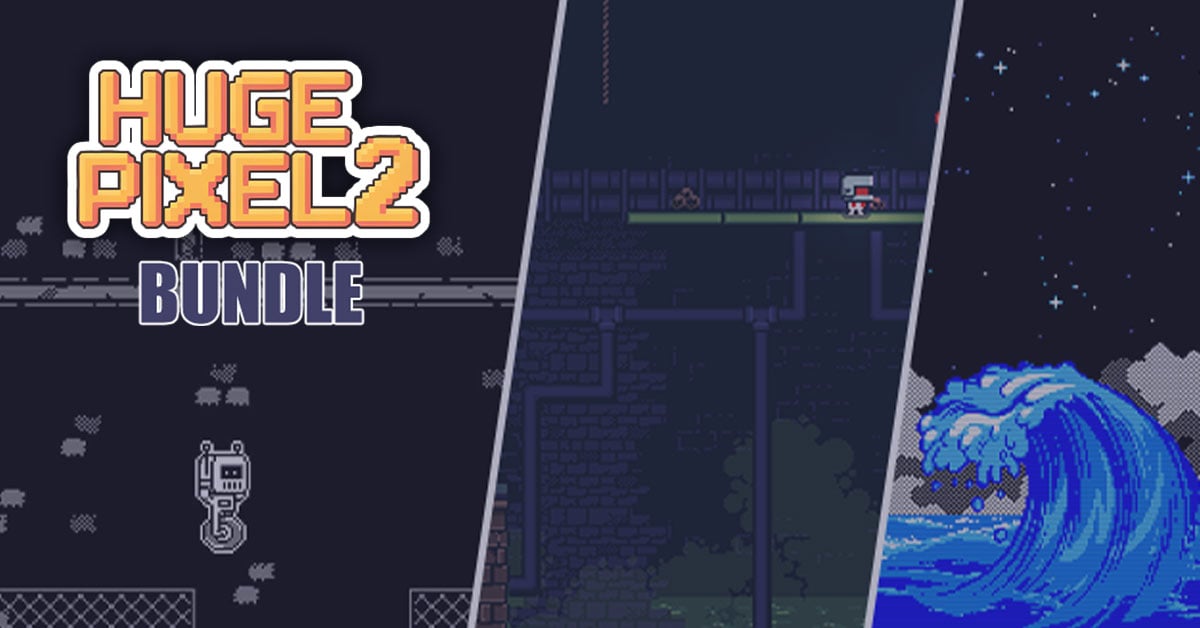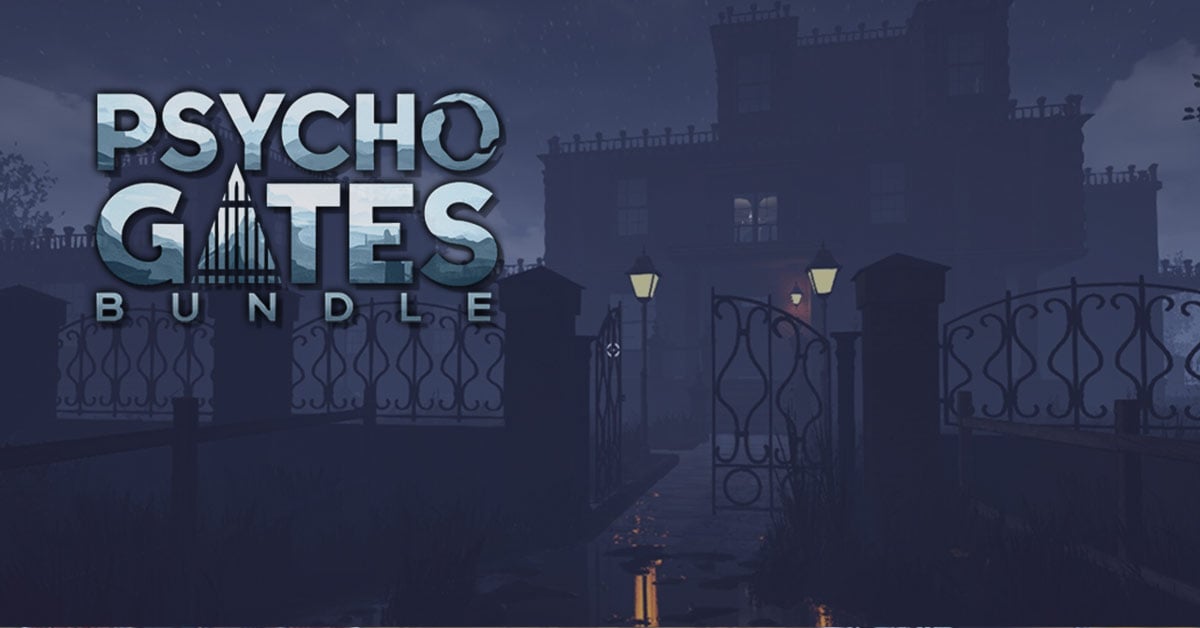When you control your minions the game changes into a classic roguelike, with turn-based and very tactical combat. You can also play as an adventurer and assault dungeons made by you or other players.
Dungeon management
You will dig deep into the mountain and build dozens of rooms, corridors and traps. Your minions will train and produce weapons and armor. Prisoners will be tortured. You will research new technologies like alchemy, beast mutation and sorcery.Roguelike mechanics
The world is simulated on a very detailed level. Creatures use equipment and consumable items. There are dozens of special items, spells, attributes and special attacks. You can cut off heads and limbs and blind or poison your enemies. If you're not careful with fire, you can burn an entire forest or even your own dungeon.Large, procedurally generated maps
In your neighborhood you'll find castles, villages, other dungeons and special locations. Slay heroes, dragons and witches for their loot. Every game you play will be different.Online map sharing
Download dungeons made by other players and explore them as an adventurer.I recently stumbled upon an old Reddit "AMA" by Tynan Sylvester, the author of Rimworld. I hope he doesn't mind if I quote chunk of one of his answers here. "What designers need to do is figure out the core of their game very early and just make that. Don't get caught up in polish, or art, or start thinking that adding ancillary features will make the game sing. If that core doesn't hit really hard and really grab players, the game is pretty much doomed. But if that core really works, everything added on will add huge value."
I think it's a very important point, and I've always felt that there is some wasted potential in the core gameplay of KeeperRL. I'm always trying to find ways to improve it, and the most recent effect was the immigration overhaul. The Alpha23 update will contain more major changes in KeeperRL's gameplay in two major departments: progression and combat mechanics. I'll split this post into two parts, and start with progression, leaving combat for part II.
Most games don't make all of their content available right from the start, but instead uncover it piece by piece, such that when playing the game, you feel that you're on a path that's leading somewhere. I think we can define progression as a mechanic that prevents the player from reaching all of the game's content at once. It's pretty obvious that it's a hugely important feature, and it can make or break a game.
I came up with the following methods of creating progression in base-building games.
- Making the building and management part of the game absorbing and challenging. This usually requires complex systems that create challenges for the player. Examples of games with such mechanics are: Dwarf Fortress, Rimworld, Gnomoria, Factorio.[/*]
- Having the player wait for stuff to complete. This includes slow resource extraction, tech research that takes time, etc. Even though this method is often used in successful games, I think it can give bad results if not used carefully.[/*]
- External challenges, like invaders, disasters, etc. They can strictly define progress, like in the tower defense genre, or be a side feature and just hinder the player's efforts from time to time.[/*]
- Exploration and conquest outside of the player's base. Only some base-building games have them. Conquest can be a requirement for winning the game, but it can also be tied more closely with progression by letting the player bring back loot and resources that are then used to improve his or her base.[/*]
I've decided long time ago that KeeperRL won't be about complex management and building a'la Dwarf Fortress, because I don't enjoy this kind of games that much, and I feel that I couldn't design one well. This leaves the other three bullet points to think about.
A major issue in KeeperRL's progression is that you can create a perfect army without being bothered much, and only then destroy all the villains. The end can also be boring, because you can be as strong as you want to. I realized that this is because the game rewards you for waiting with regeneration of mana. Waiting is only good when it comes with trade-offs, such as a risk of being invaded. But invasions are hard to balance in KeeperRL, and when the enemies are too aggressive, then the game becomes too hard for lot of players.
That's why I tried a different direction and removed the waiting, such that mana is only awarded for conquering villains, and not generated in the library. It turns out that this simple change made the game much more interesting. Conquest is the only way to research technology, so it's very strictly tied with your dungeon's progression. It could potentially make the game too linear, but I think this can be mitigated by tweaking technologies and their cost, so that multiple research paths are optimal.
The biggest consequence of this change is that it creates a huge incentive for attacking. You are always desperate for more mana, so you'll attack with weaker forces than before, which will create new challenges and interesting scenarios. There are more changes that need to come along, for example some structures and minions used to cost mana, but since it's a more valuable resource now, the costs need to be tweaked. The primary use of the library room was to generate mana, but now it will only be a training room for spellcasting minions.
I know that there are players who are in more for base-building than the roguelike aspects of KeeperRL. This is where the endless mode will help, substituting conquest with defending your dungeon - mana will be rewarded for each deflected enemy wave.
As I've already mentioned, the next blog post will talk about changes in combat mechanics. I hope to be able to publish a testing build once all of the described changes are implemented in a basic form, and gather feedback from you. This will let me tweak and balance things or even revert the changes if they don't work out. At the same time I will be implementing the other features planned in Alpha23: the endless mode and content additions.
Minimum Setup
- OS: Ubuntu
- Processor: Dual Core CPU - 2.4GHz+Memory: 4 GB RAMStorage: 1 GB available space
- Memory: 4 GB RAMStorage: 1 GB available space
- Storage: 1 GB available space
Recommended Setup
- OS: Ubuntu
- Processor: Dual Core CPU - 4GHz+Memory: 8 GB RAMStorage: 1 GB available space
- Storage: 1 GB available space
[ 6370 ]
[ 5870 ]
[ 1265 ]
[ 1943 ]
[ 986 ]



